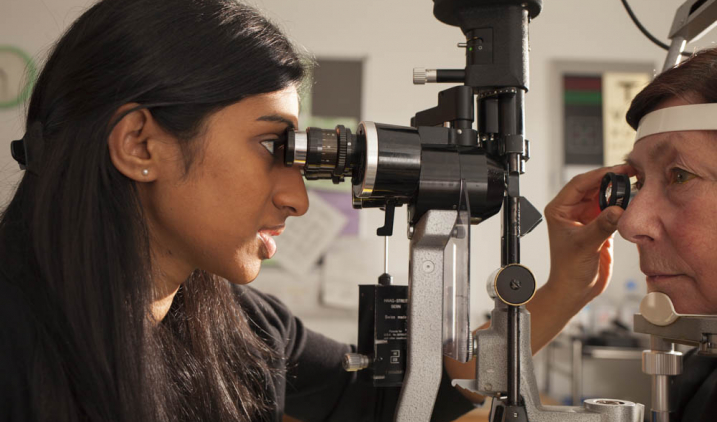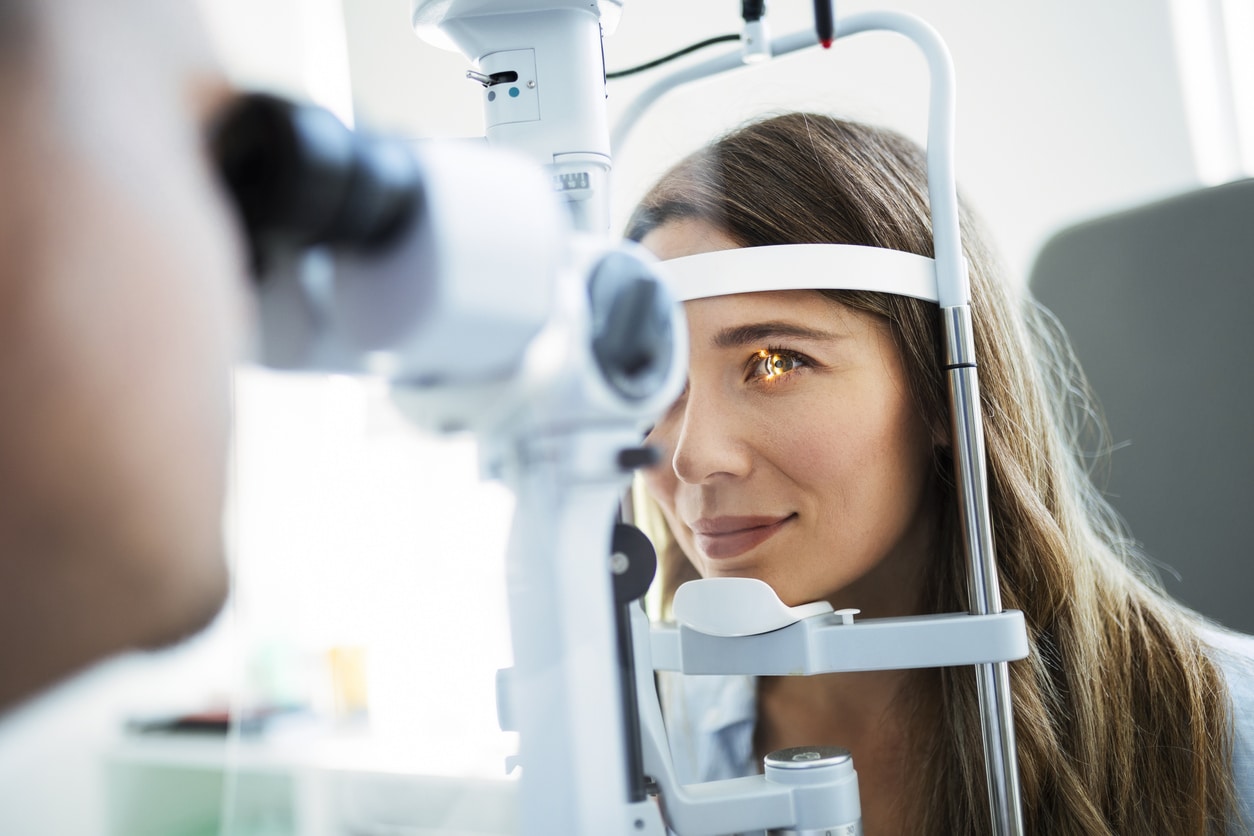Ophthalmologist in Nabua: Advanced Treatments for Vision Issues and Eye Diseases
Comprehending the Role of an Ophthalmologist in Eye Care
The role of an ophthalmologist in eye treatment is complex, including both the diagnosis and treatment of a large array of ocular conditions. These physician are not just experienced at conducting comprehensive eye evaluations but also have the knowledge to determine systemic health concerns that may show up through visual symptoms. Given the prevalence of eye problems such as glaucoma and cataracts, understanding the breadth of an eye doctor's responsibilities becomes essential. Lots of people remain uninformed of the critical aspects of eye health management that can substantially affect their quality of life. What could be missing out on from this necessary conversation?

What Is an Ophthalmologist?
Although lots of people may puzzle ophthalmologists with eye doctors or opticians, an ophthalmologist is a clinical doctor focusing on the diagnosis and treatment of eye conditions and illness. ophthalmologist in nabua. This field of expertise needs substantial education, including finishing a bachelor's level, complied with by medical institution, and a residency in ophthalmology
Ophthalmologists are furnished to manage a wide array of conditions, from usual refractive errors to complex medical interventions. They have a detailed understanding of the anatomy and physiology of the eye, enabling them to diagnose conditions such as glaucoma, cataracts, and macular deterioration.
Along with medical monitoring, many ophthalmologists perform surgical treatments, such as cataract removal or laser therapies for refractive mistakes. This double capacity of offering both clinical and surgical treatment distinguishes them from various other eye treatment professionals.

Key Obligations of Ophthalmologists
The key obligations of ophthalmologists include a vast variety of jobs necessary for preserving and boosting eye health. They perform comprehensive eye examinations to examine visual skill and detect numerous eye problems, making use of sophisticated analysis tools and strategies. This includes translating imaging studies and carrying out specialized examinations to examine the structure and function of the eye.
Ophthalmologists are also in charge of recommending corrective lenses, drugs, and non-surgical treatments to take care of eye conditions properly. In instances needing medical intervention, they perform a selection of procedures, varying from laser treatments to complex surgeries aimed at dealing with refractive errors or dealing with a lot more severe eye illness.
Patient education is another crucial element of their duty. Ophthalmologists notify people concerning preventative steps, therapy alternatives, and possible risks related to eye wellness. They additionally collaborate with other health care specialists to guarantee thorough look after patients with systemic illness that might influence vision.
Moreover, they stay abreast of the most up to date innovations in ophthalmology via constant education and research, ensuring they give one of the most reliable, evidence-based treatment. Through these varied duties, ophthalmologists play a pivotal role in safeguarding and improving the vision and overall eye health of their people.
Common Eye Conditions Treated
Ophthalmologists frequently come across a variety of typical eye conditions that need their experience for efficient management and treatment. One common condition is refractive errors, that include nearsightedness, hyperopia, and astigmatism. These errors can usually be fixed with glasses, contact lenses, or refractive surgical treatment.
Another significant problem is cataracts, characterized by the clouding of the eye's lens, bring about blurry vision. Surgical treatment is usually required to eliminate the cataract and restore clarity. Glaucoma, a leading reason of blindness, involves increased intraocular pressure, requiring normal tracking and potential surgical or pharmacological treatment to maintain vision.
Furthermore, age-related macular degeneration (AMD) affects the central portion of the retina, impacting in-depth vision. Monitoring may consist of lifestyle adjustments and, sometimes, laser treatment or injections. Diabetic retinopathy, an issue of diabetic issues, can lead to vision loss if left neglected; mindful tracking and prompt therapy are vital.
The Value of Routine Eye Examinations
Normal eye exams play a critical role in preserving total eye wellness and a knockout post detecting potential problems early. Several eye problems, such as glaucoma, macular deterioration, and diabetic retinopathy, can create without noticeable symptoms up until substantial damages has happened. Regular evaluations make it possible for eye doctors to identify these problems at their start, permitting timely treatment that can protect against vision loss.
Throughout an eye examination, an eye doctor he has a good point reviews aesthetic skill, analyzes the health and wellness of the eye's interior structures, and look for any irregularities. These evaluations are critical not just for identifying eye-related issues yet also for determining systemic wellness conditions that may show up through eye signs and symptoms, such as hypertension or diabetes mellitus.
The regularity of eye tests can vary based on age, threat aspects, and existing health conditions. As an example, people over 60 or those with a household background of eye illness should be particularly attentive concerning regular exams. Inevitably, focusing on eye examinations fosters aggressive monitoring of eye health, ensuring that any possible issues are dealt with promptly, consequently maintaining vision and boosting lifestyle. Together with an eye doctor, individuals can establish a tailored timetable that ideal fits their private requirements.
Exactly How to Select an Eye Doctor
Choosing an ophthalmologist is a crucial choice that can substantially affect your eye health and wellness and general wellness. When picking an eye doctor, consider their qualifications, experience, and locations of expertise. ophthalmologist in nabua. Guarantee they are board-certified and have actually completed the needed training in ophthalmology, which normally consists of a medical degree and a number of years of residency
Referrals from your health care medical professional or relied on buddies can supply important understandings right into potential candidates. Furthermore, researching on the internet testimonials and client reviews can help gauge the eye doctor's credibility within the community. Evaluate the ophthalmologist's experience with details conditions or treatments appropriate to your needs, such as cataract surgery, glaucoma monitoring, or pediatric eye treatment.
Area and availability are likewise essential aspects; choose an eye doctor whose office is conveniently located i loved this and provides versatile hours. Inevitably, selecting an eye doctor that lines up with your health care requirements and individual comfort can foster a positive long-lasting connection concentrated on maintaining your eye wellness.
Verdict
In final thought, eye doctors serve a vital function in eye care via their thorough training and competence. By detecting and dealing with a broad array of eye conditions, these doctor substantially add to the preservation of visual wellness. Routine eye assessments are important for very early detection of prospective problems, consequently enhancing total well-being. Choosing a qualified eye doctor is critical for obtaining proper treatment and maintaining optimal eye health throughout one's life.